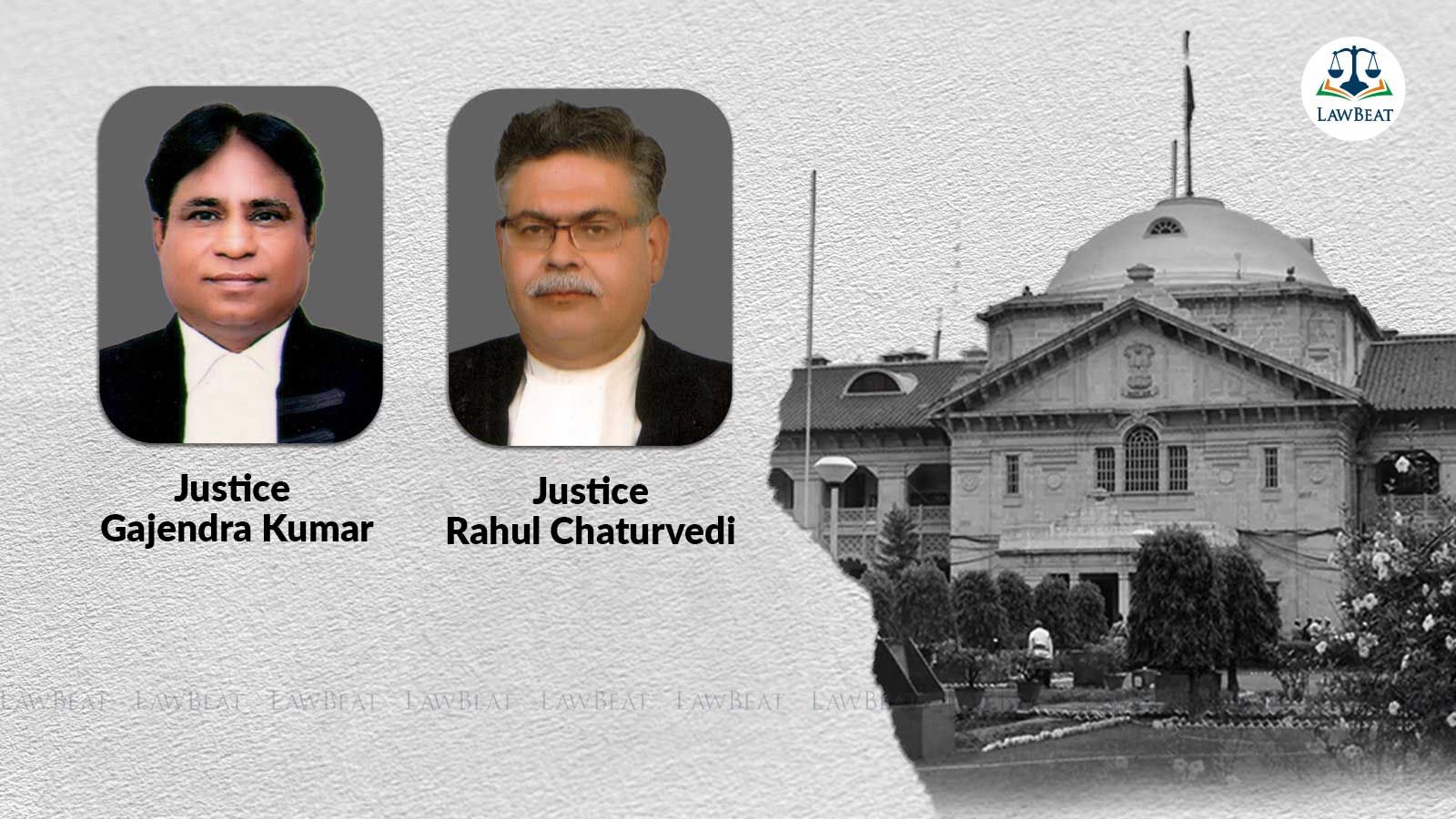Detention Under NSA Against Person In Custody Permissible Only When Threat To Public Order Is Proved: Allahabad HC

Court was dealing with a plea moved by an accused who was already in custody in District Jail, Azamgarh, challenging his detention under Section 3(2) of the National Security Act, 1980.
The Allahabad High Court in its judgment dated May 3, 2023, held that where a person is already in custody, an order of "preventive detention" under the National Security Act, 1980, may be passed only upon the satisfaction that it is necessary to detain that person for the purpose of preventing him from acting in a manner “prejudicial to maintenance of public order”.
A division bench of Justice Rahul Chaturvedi and Justice Gajendra Kumar, while quashing the impugned order under Section 3(2) of the NSA, 1980, observed,
“Keeping in view the fact that the petitioner was already in Jail, in a case under Sections 2/3 of the Uttar Pradesh Gangsters and Anti-Social Activities (Prevention) Act, 1986, that he had not filed an application for bail in the aforesaid case before the Hon'ble High Court and that even when he would file an application for bail, he would not be released on bail unless (a) the Public Prosecutor is given an opportunity to oppose the application for such release, and (b) the Court is satisfied that there are reasonable grounds for believing that he is not guilty of such offence and that he is not likely to commit any offence while on bail, it cannot be accepted that there was any material for recording the satisfaction of the detaining authority that with a view to preventing the petitioner from acting in any manner prejudicial to the maintenance of public order it was necessary to detain the petitioner under the NSA, 1980.”
The court took cognizance of various pronouncements by the Top Court, to arrive at the conclusion that even in the case of a person in custody, a detention order can validly be passed if the authority passing the order is aware (1) that the person concerned is in custody and there is a possibility of him being released on bail (2) that on being so released he would, in all probabilities, indulge in prejudicial activity (3) that it is essential to detain him in order to prevent him from doing so.
Where there is satisfaction recorded by the detaining authority on the aforesaid aspects, it cannot be contended that the proper course of action was to first oppose the bail, held the court.
Following were the main grounds preferred by the present petitioner against the detention order dated 25.07.2021:
- The alleged incident was an offence against individuals which affected “law and order” and not “public order” so as to attract provisions of Section 3(2) of the NSA, 1980;
- The date of the incident and Detention Order has no proximity, hence, it was neither warranted nor justified;
- Copies of relevant documents were not provided to the petitioner;
- No legal aid at the time of the hearing;
- Representation by the Petitioner was not considered;
- The detention order was passed while the petitioner was still in custody and no bail application was moved as such
Brief Background:
The present petition was filed by an accused who was already in custody in District Jail, Azamgarh, challenging his detention under Section 3(2) of the National Security Act, 1980 and the entire consequential proceedings being illegal and unconstitutional.
The detention order stated that the detaining authority was satisfied to pass such an order to prevent the petitioner from acting in a manner prejudicial to “maintenance of public order”. The grounds, however, were contained in a separate communication which detailed the incident that led to the passing of the detention order.
Four separate FIRs were lodged primarily under the UP Excise Act, Gangsters and Anti-Social Activities (Prevention) Act and the Penal Code, 1860 alleging that the petitioner had committed the offence of selling adulterated liquor.
Case Title: Rangesh Yadav v. Superintendent of Jail | HABEAS CORPUS WRIT PETITION No. – 810 of 2022
